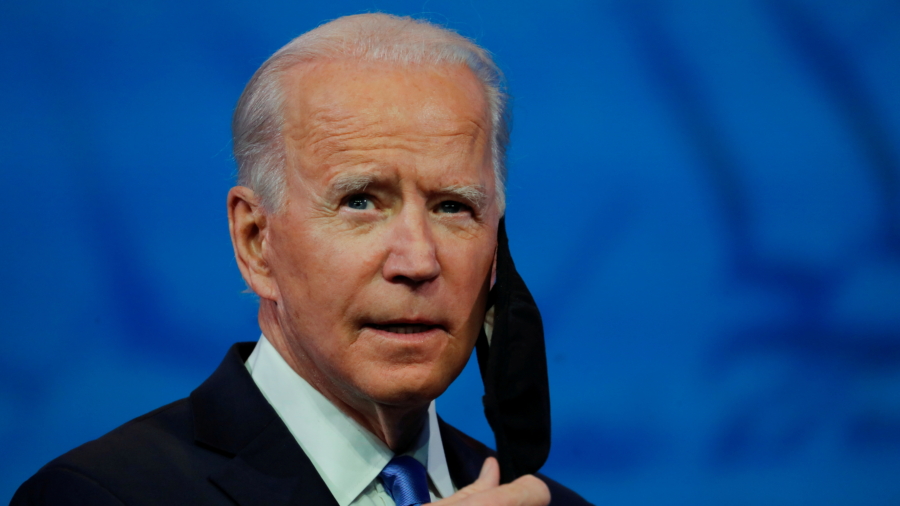Democratic presidential candidate Joe Biden reaffirmed that some higher education will be free if he becomes the president.
“In the 21st century, twelve years of school isn’t enough. That’s why under the Biden-Harris plan, community college will be free—and public colleges and universities will be tuition-free for families earning less than $125,000 a year,” he wrote Thursday in a Twitter post.
In a string of Twitter posts, the former vice president promoted Miguel Cardona, his education secretary pick, addressed reopening schools safely amid the CCP (Chinese Communist Party) virus pandemic.
He also mentioned doubling the number of school psychologists, counselors, nurses, and social workers to address the students’ mental health and behavioral needs.
Biden’s plan of free college was adopted from Sen. Bernie Sanders (I-Vt.), a prominent socialist and advocate for free college. The proposal, which would require action by Congress, calls on the federal government to partner with states to split the cost.
When Sanders asked Education Secretary Betsy DeVos about free college during her 2017 Senate confirmation, DeVos argued that “nothing is truly free.”
“Somebody, somewhere pays the bill,” she said. “And the bill is coming due. What we do next in education policy—and in public policy writ large—will either break our already fragile economy, or it will unleash an age of achievement and prosperity the likes of which we’ve never seen.”
DeVos also warned that the push for free college is a “socialist takeover of higher education” that could damage the nation’s economy.
“Make no mistake: It is a socialist takeover of higher education,” she said during an online conference hosted by the Education Department’s Federal Student Aid office. “Now, depending on your personal politics, some of you might not find that notion as scary as I do. But mark my words: None of you would like the way it will work.”
Currently, a number of states, including Tennessee, Oregon, California, New York, etc., have passed or proposed policies offering free higher education.
There’re two major drawbacks to the free college plan, first is it could crowd out the private colleges, second is it may create a lack of motivation among public college students.
Clarkson University, a private college in New York upstate, reportedly witnessed more than 100 prospective students change their minds to enroll in public colleges after The Empire State rolled out a tuition-free policy in 2017.
The policy created financial difficulties, Clarkson told Bloomberg.
Research conducted by the Federal Trade Commission (FTC) Bureau of Economics in September says the effect of tuition-free community college depends on the design of the plan.
“Programs that only cover tuition after accounting for other sources of grants increase enrollment by 10 percent and degree completions by 10 percent, but provide no benefit to low-income students. Need-based programs that make community college free for low-income students increase enrollment by 12 percent and are beneficial to low-income students, but harm middle- and high-income students and only increase degree completions by 4 percent,” the study (pdf) concluded.
The Associated Press contributed to the report.
From The Epoch Times


